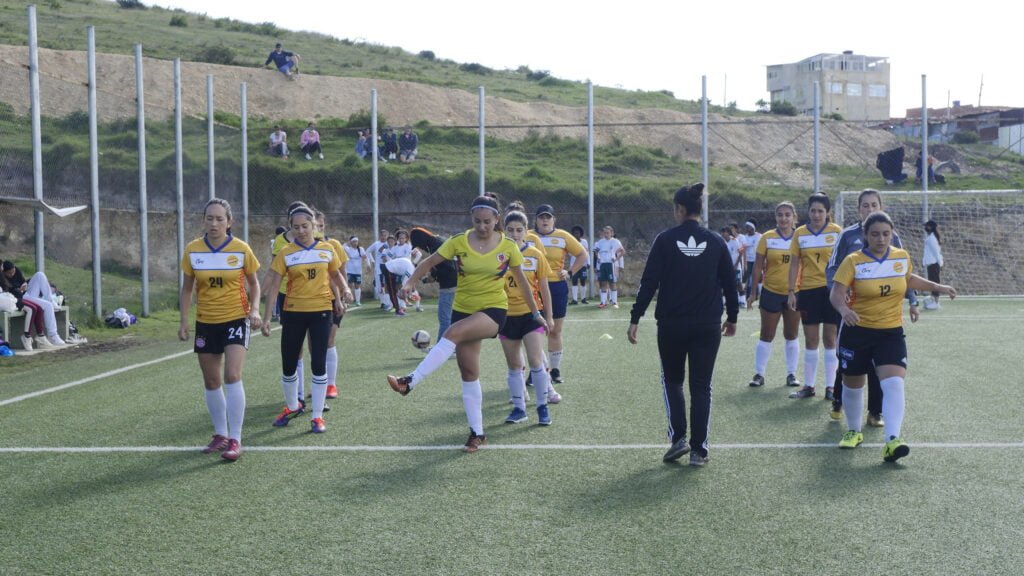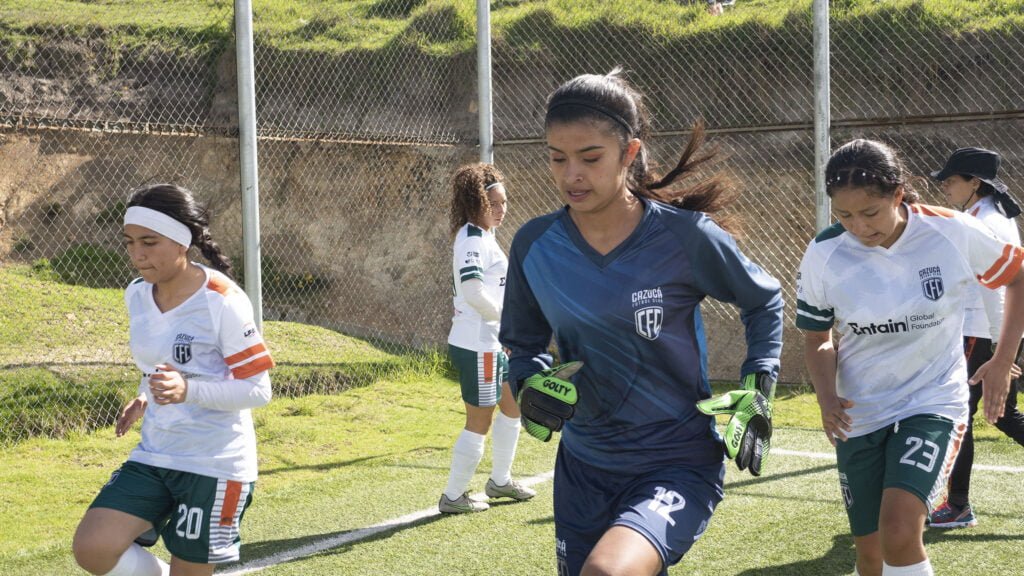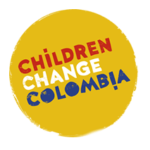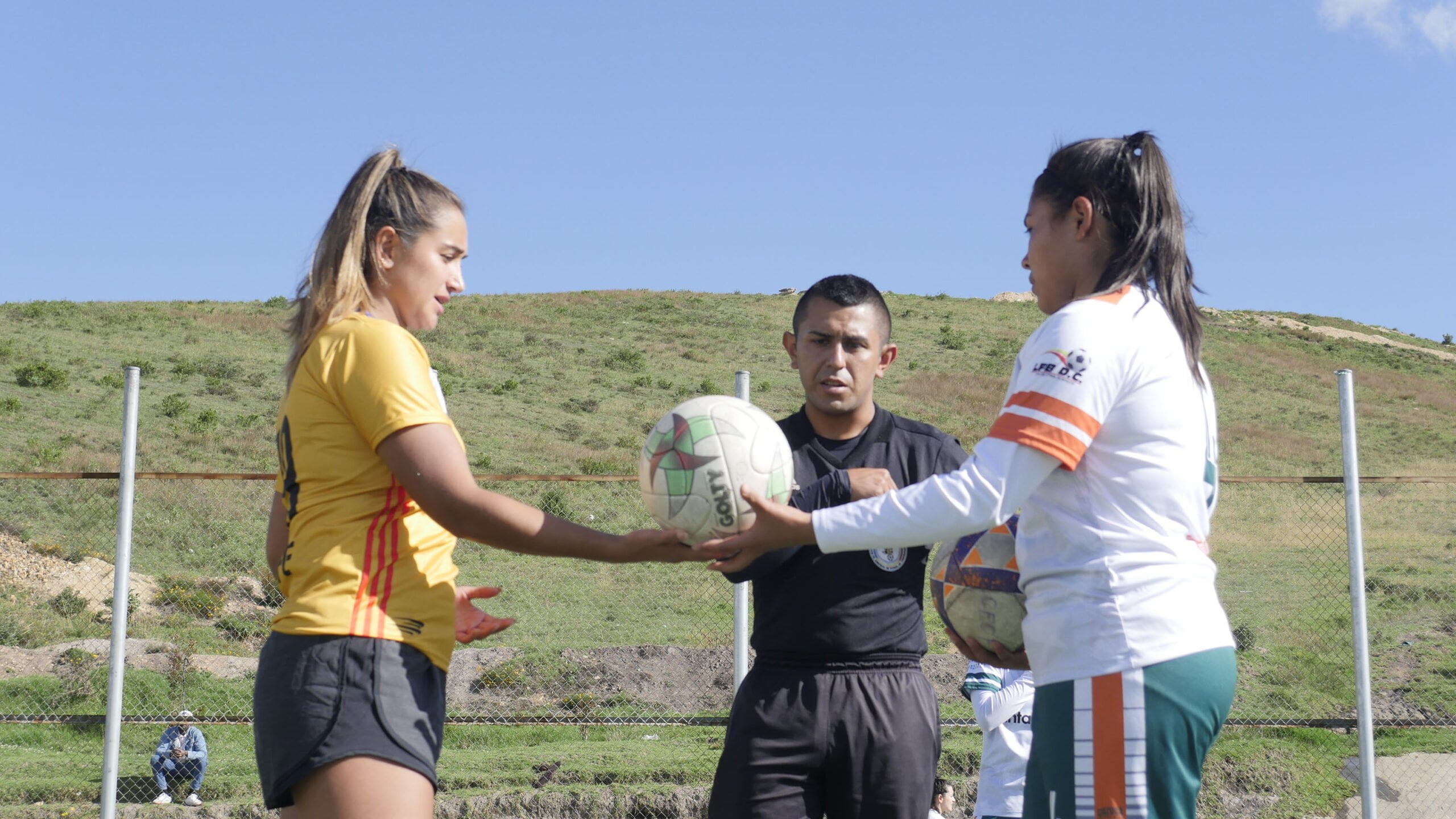So why is there still gender inequality within football?
Men’s teams have always been supported financially, having tools, resources, staff, publicity, visibility, high-quality training, tournaments, and so on. So the issue is structural, not physiological. More and more people especially women are realizing this and are now standing up to defend their rights. The biggest milestone in the movement for equality within Football until now was achieved by US Women’s football. The players, (USWNT), won a collective lawsuit filed in 2019, where they denounced the wage discrimination against the United States Soccer Federation (USSF), and have reached a $24 million agreement.

The Children Change Colombia team and our participants of our project took part in a football match!
Tiempo de Juego (TDJ) is one of CCC’s longest project partners working to prevent the participation of children and young people (CYP) in gangs and criminal activities. TDJ also promotes community transformation through sports, arts, and technology to enhance the capacities of CYP. They’ve recently formed the first women’s team in Soacha, Cundinamarca (one of the most vulnerable populations near Bogotá): the “Cazucá Football Club”.
CCC proposed a friendly match between our work team and Cazuca Football club to strengthen our long partnership and raise awareness of the importance of women’s participation in a traditionally “male sport”. For the official International Day of Women’s in Football, May 23rd of 2022, we held a Women’s football day at our partner TDJ’s centre in Bogotá. CCC contacted three professional players from three local women’s football clubs in Bogotá: Jacky Fonseca from the Equidad Club, Venus Pineda from the Fortaleza Club, and Viverly Erazo from the Millonarios Club.
The day finally arrived! The Children Change Colombia team (formed by the female football club Stark, Carol Betancourt- fundraising Coordinator, and Liliana Rodriguez – MEAL Officer) arrived at the TDJ soccer field ready to celebrate this iconic day. The event opened with a meet and greet with Jacky, Venus and Viverly, where girls from the Cazucá F.C asked them questions about the role of women in football, challenges, advice, and more.
Finally, the protagonists were the girls from Cazuca FC, who had spent months training and preparing. We wanted to keep it simple and focused on enjoying football and celebrating it. The CazucáFC girls were the winners! They showed strength, vitality, a lot of power, and plenty of potential.
I believe our greatest achievement was being able to generate a space where girls could engage in a dialogue about women’s football, their role in the sports industry, and their representation in this profession.






